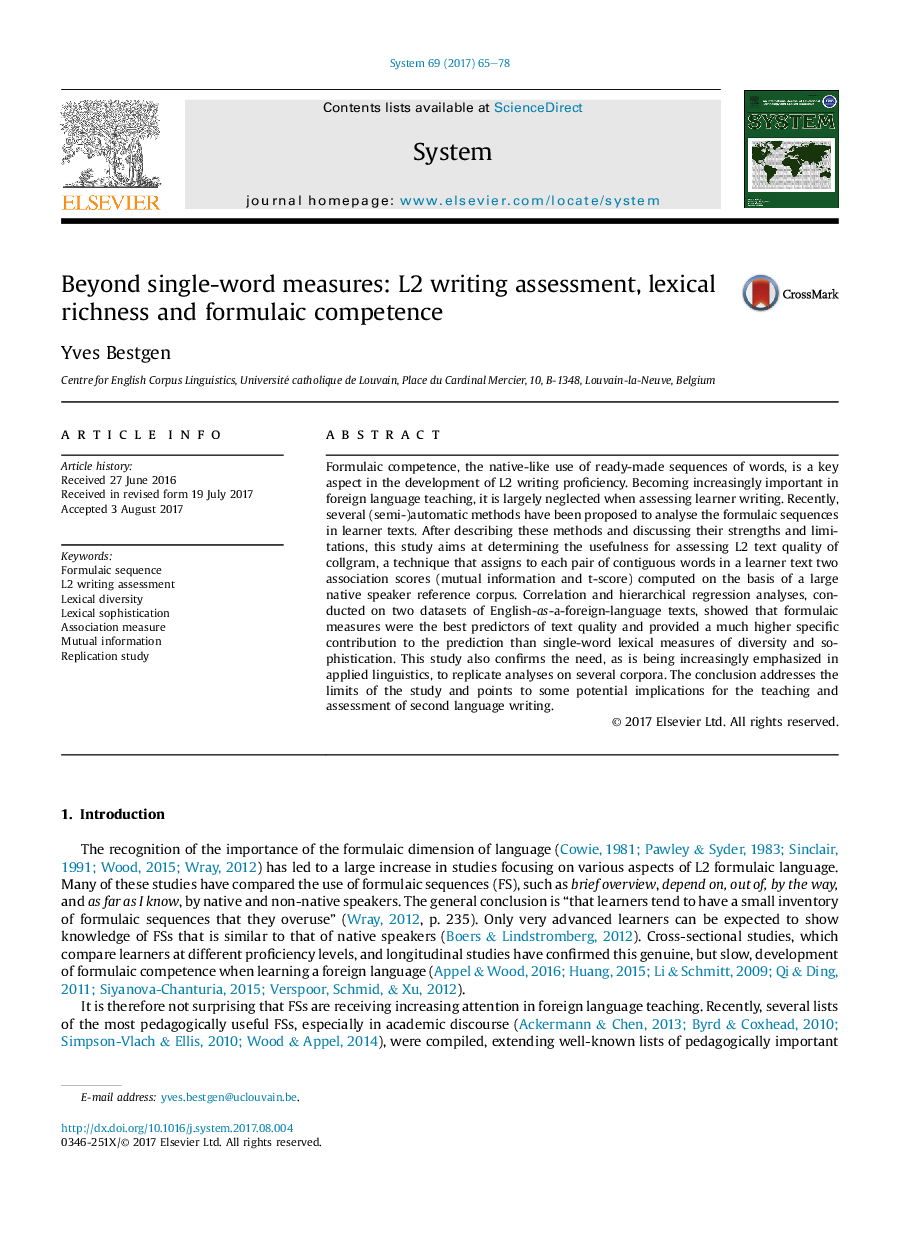| Article ID | Journal | Published Year | Pages | File Type |
|---|---|---|---|---|
| 4941340 | System | 2017 | 14 Pages |
Abstract
Formulaic competence, the native-like use of ready-made sequences of words, is a key aspect in the development of L2 writing proficiency. Becoming increasingly important in foreign language teaching, it is largely neglected when assessing learner writing. Recently, several (semi-)automatic methods have been proposed to analyse the formulaic sequences in learner texts. After describing these methods and discussing their strengths and limitations, this study aims at determining the usefulness for assessing L2 text quality of collgram, a technique that assigns to each pair of contiguous words in a learner text two association scores (mutual information and t-score) computed on the basis of a large native speaker reference corpus. Correlation and hierarchical regression analyses, conducted on two datasets of English-as-a-foreign-language texts, showed that formulaic measures were the best predictors of text quality and provided a much higher specific contribution to the prediction than single-word lexical measures of diversity and sophistication. This study also confirms the need, as is being increasingly emphasized in applied linguistics, to replicate analyses on several corpora. The conclusion addresses the limits of the study and points to some potential implications for the teaching and assessment of second language writing.
Keywords
Related Topics
Social Sciences and Humanities
Arts and Humanities
Language and Linguistics
Authors
Yves Bestgen,
